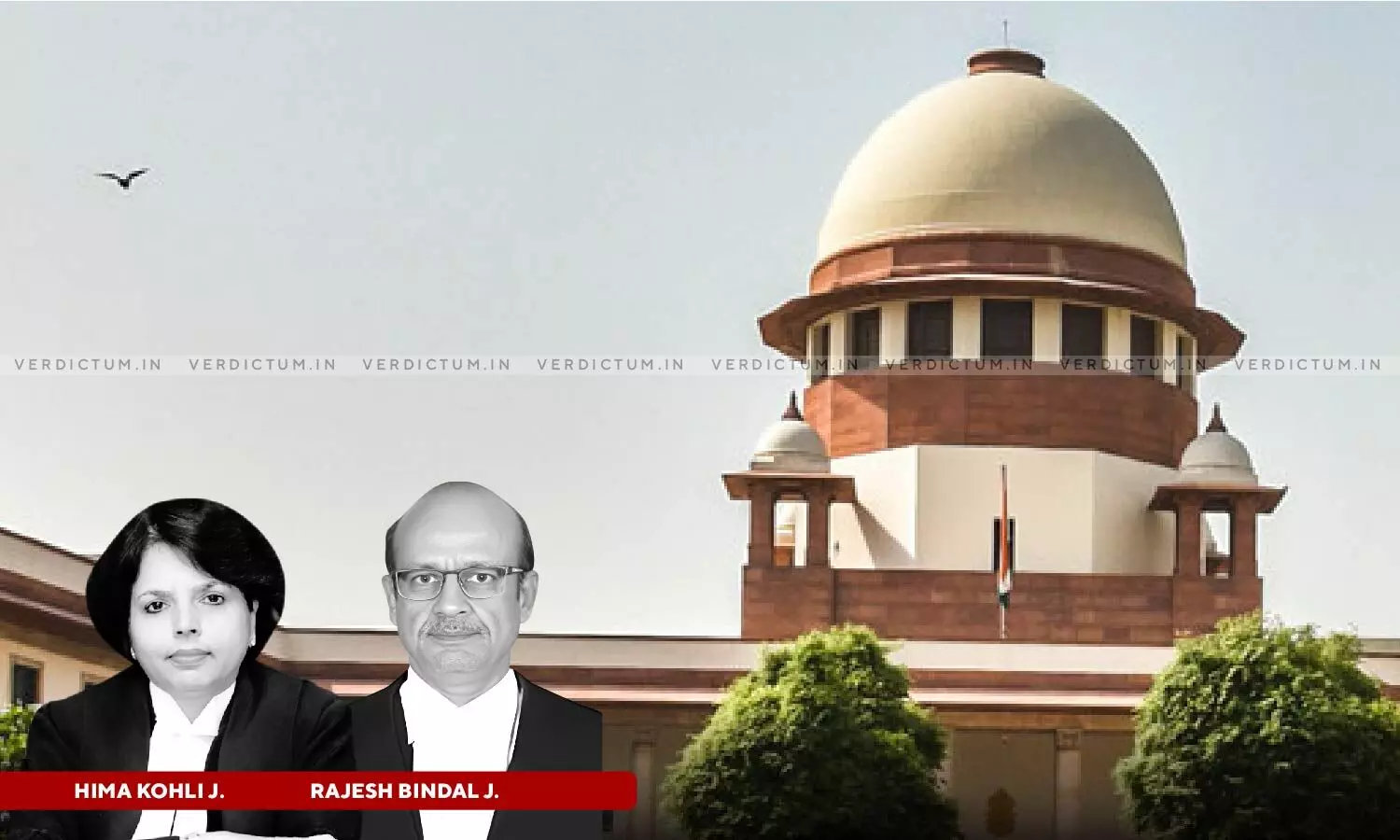
Reconveyance Condition Must Reside In Sale Document For Transaction To Qualify As Mortgage: Supreme Court
 |
|The Supreme Court while dismissing an appeal upheld High Court's judgment which had established that the transaction in question constituted an absolute sale followed by an option to repurchase, rather than a mortgage.
A two judge Bench of Justice Hima Kohli and Justice Rajesh Bindal observed that, “In terms of the Sale Deed and the Reconveyance Deed, reconsidered in the light of the enunciation of law, as referred to above, in our opinion, the same cannot be held to be a transaction of mortgage of property. Sale of property initially, was absolute. By way of execution of Reconveyance Deed, namely, on the same day, the only right given to the appellants was to repurchase the property.”
The appellant appealed to the Supreme Court against a High Court's decision that had upheld their previous appeal against a trial Court's judgment. The case involved a property acquired in 1963 by the appellant's minor self through their father. In 1973, the property was sold to Rudramma, and an unregistered document outlined Rudramma's commitment to reconvey the property within five years upon repayment. In 1978, the appellant's father attempted to reclaim the property, but Rudramma refused, asserting an outright sale. In 1987, Rudramma's heirs sold the property. The appellant's lawsuit seeking relief was initially dismissed by the trial Court and upheld by the High Court.
Senior Advocate Kiran Suri appeared for the Appellant and Senior Advocate Aditya Sondhi appeared for the Respondents.
The appellant's senior counsel argued that the lower courts' conclusion of the suit being time-barred was flawed, contending that the case should be treated as one involving the redemption of a mortgage rather than merely challenging the Sale Deed. The appellant's legal team asserted that the property in question was owned by the appellant, who was a minor at the time of the Sale Deed executed by their father. They argued that the sale lacked legal necessity and should be invalidated. Additionally, the appellant's side highlighted that the respondent's attempt to seek possession of the property through a separate suit indicated that the property was mortgaged rather than outright sold.
Conversely, the respondent's senior counsel disputed the appellant's assertion that the transaction constituted a mortgage. They cited Section 58(c) of the Transfer of Property Act, pointing out that mortgage clauses were required to be present in a single document. The respondent's legal team contended that the suit was indeed time-barred, given that the appellant filed it in 1987 to contest a Sale Deed executed in 1973, with the appellant having reached legal adulthood in 1980. Moreover, the respondent's counsel underlined that possession of the property had been transferred to the vendee in accordance with the Sale Deed's terms. They also argued that the judgments cited by the appellant were not applicable in the current scenario.
The core issue before the Court was as to whether the transaction between the parties was an absolute sale of the property or it was a mortgage.
The Court noted that some relevant documents were not submitted as evidence, with the onus falling on the appellant. The appellant's age of majority in 1980 was confirmed, and this fact was further supported by the suit filed in 1987 where he claimed to be 24 years old. The prayers in the suit sought either to declare a sale deed as null and void or redemption of a mortgage. The trial court framed several issues, but the issue of limitation was not raised before the High Court.
The Court examined Section 58(c) of the Transfer of Property Act to differentiate between mortgage by conditional sale and sale with a condition of repurchase. The Court emphasized that the condition must be embodied in the document that effects or purports to effect the sale. The Sale Deed and Reconveyance Deed in this case were separate documents, leading the court to consider them as distinct transactions. The Sale Deed stated an absolute sale, and the Reconveyance Deed allowed repurchase under specific conditions.
Citing legal precedents, the Court found that the Sale Deed and Reconveyance Deed did not constitute a mortgage but rather an absolute sale followed by an option to repurchase.
The Court concluded that the High Court's judgment was correct, and the appeal was dismissed.
Cause Title: Prakash (Dead) By LR. v. G. Aradhya & Ors.
Click here to read/download Judgment